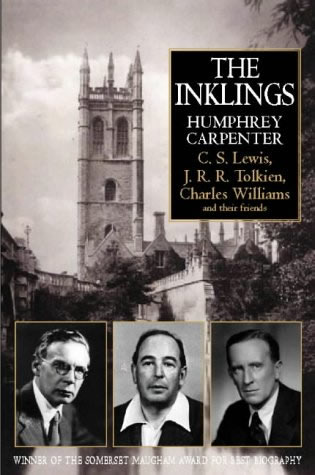
i looked early this morning at my e-mails to see if there were a report on the health of archbishop richard gundrey. there was, and it was good: he is home from the hospital and recovering well.
there was also this question: "what's your assessment of c.s. lewis these days, on his own merits and also in light of what's happened with fantasy literature since then . . . ? and george macdonald?"
i found it a helpful question, and i'm sharing my reply with whomever reads this blog:
ah, lewis & macdonald. your question comes at an appropriate time. my beach book is the once and future king. i only a few months ago read the inklings, which i found quite fascinating, and a good background for that hideous strength and perelandria, which i read soon thereafter. (i confess i have never read any of macdonald's works, but have been very impressed with charles williams; i read two of his novels from interlibrary loan, and want very much to find his poetry. if you have read that hideous strength then you know it's (and very much the inkling's) understanding that there is always a battle between england and albion--much like gurdjieff's wolf and lamb.
what most impresses me about lewis and the others of inklings is the quality of their dialogue, and that they most successfully expressed it in narrative. (lewis' four loves, for instance, although a wonderfully eradite (sp?) exposition, is wrong insofar as how greeks actually used their four words for love; but his descriptions of the ways of loving in perelandria is insightful anyway.) and of course central to their discussion was a consideration of the nature of the good and the existence and substance, if any, of evil. i was very disappointed but not surprised while being a fly on the wall yesterday at the adult forum at st. andrew's here in port angeles to hear adult churchmen who had no vocabulary to discuss this problem except that of the tabloids.
but fantasy literature also provides a vocabulary. evil does not go away if we ignore it. perhaps the screwtape letters is lewis' book which we most need. even if evil and our role to oppose it never comes up in today's pulpits in any way except that perhaps we should choose a good emperor, we know in our bowels that we are in a struggle. enter dowling, with whom you are much more familiar than i, who have only seen a few of the movies made from her books.
these books seem almost an affirmation of jung's collective unconscious, and a suggestion that if the church does not address such issues, or if the church is excluded from the public discussion of such issues, then they will be discussed without the church.
my question to you, . . . is why you are asking this question now, and whether the fantasy literature tends to portray magic in the way it is used by simon magus in the acts of the apostles and in the acts of peter?
one might suspect the current understanding of evil and our role in opposing it is probably well represented in the baptism and confirmation rites of the bcp 1979. still included are the traditional renunciations in the baptismal office, left there probably because the old fogies, bless their hearts, would not let them be removed; but the real center of it is the wonderfully pelagian baptismal covenant, which as . . . . a visitor from england [to eureka springs] . . . a few years ago noticed, is quite new. in the confirmation office and in the reaffirmation of baptismal vows, evil is hardly spoken of--not i think in the way that lord voltimor (sp?) in the harry potter books is not spoken of, but as a sort of anachronistic remnant from medievalism --while our vows are center stage again.
well. you've provoked me to write an essay before breakfast again. it's good to be provoked in such a way, one suspects. whatever lewis' faults, one cannot accuse him of not taking his baptism seriously, even though his self-identity as a christian first probably kept him from promotion at oxford.
